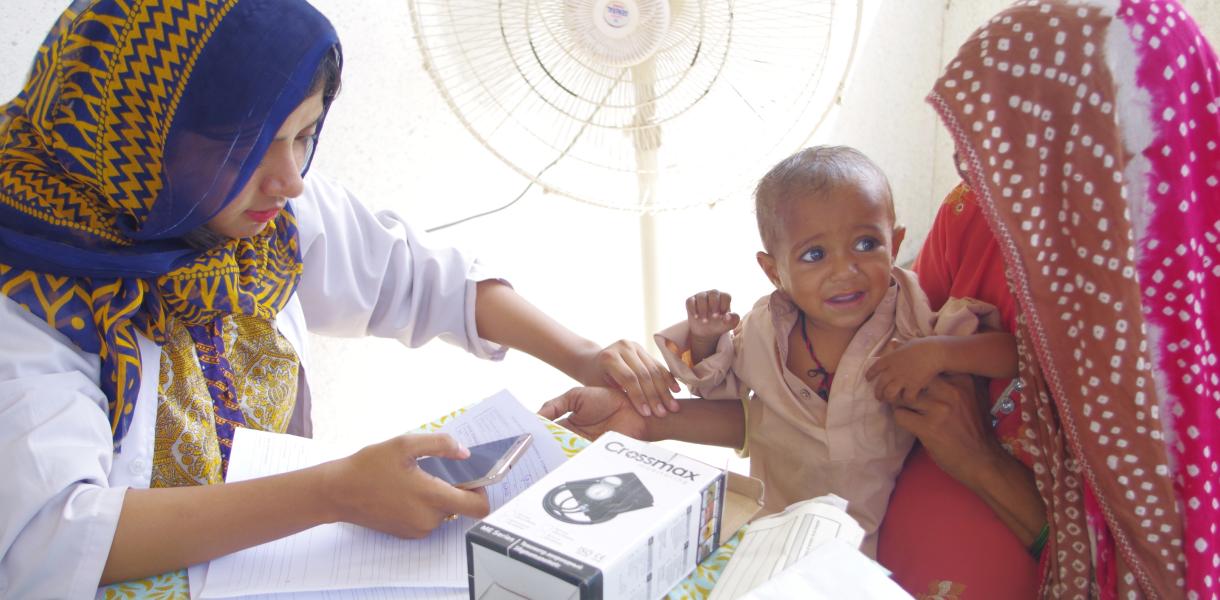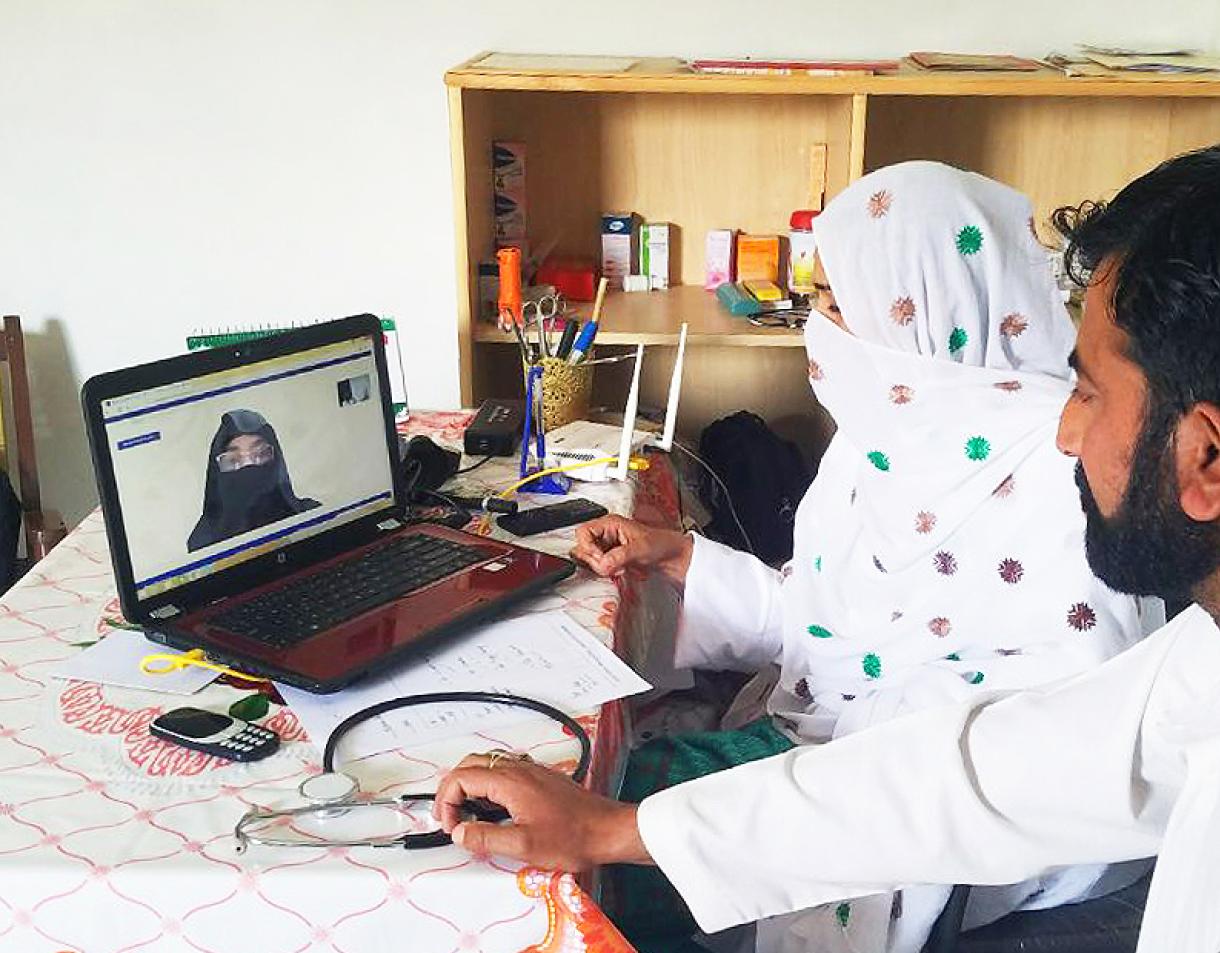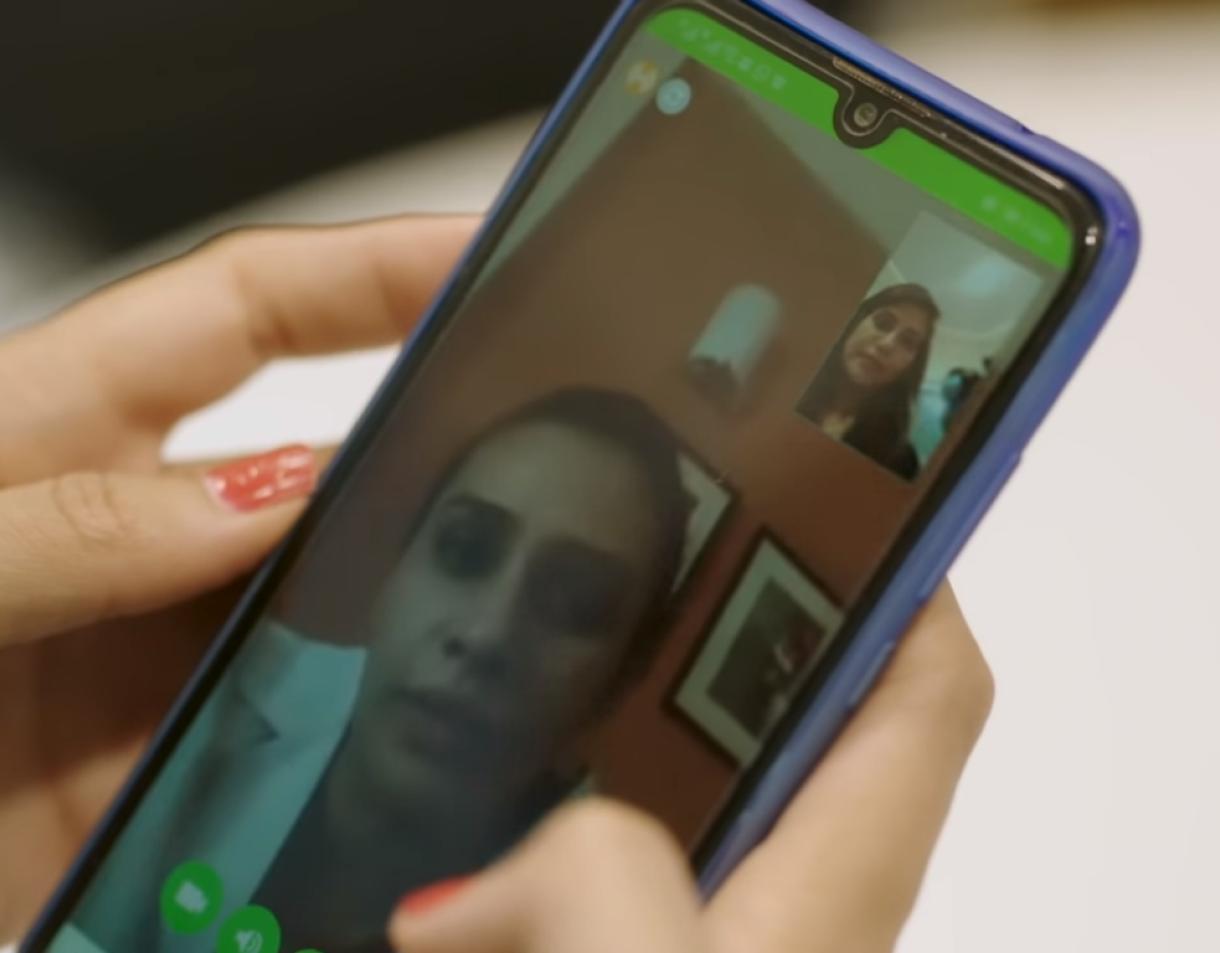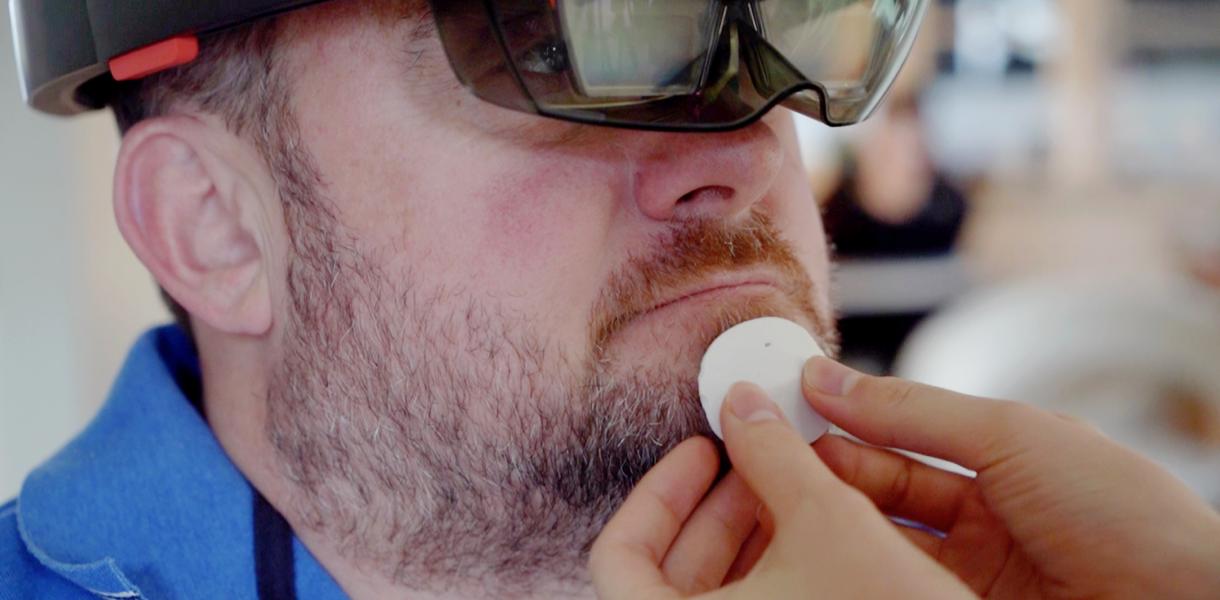What’s the design in a nutshell?
Sehat Kahani, meaning the story of health, is a health tech company aiming to democratise health. Through physical clinics and e-consultations, they’re not only making healthcare more accessible but also creating an all-female network of doctors to aid their community.
Why is it needed?
Sehat Kahani is based in Pakistan, one of the many countries where easy, affordable and accessible healthcare is not a given – for every 1,200 patients, there’s only one doctor available. But ensuring the health of the Pakistani population is only half the story of Sehat Kahani.
Co-founded by the two female doctors Dr. Sara Saeed Khurram (CEO) and Dr. Iffat Zafar Aga (COO), they experienced not having the support of their environment to pursue their careers. In a patriarchal society like Pakistan, women are expected to prioritise family over their jobs.
The problem has been dubbed the “doctor bride” phenomenon. According to the Medical Council of Pakistan, 70% of medical students in Pakistan are female but only 23% of them practise after they graduate. Actually, about half of female doctors in Pakistan drop out of work. Khurram and Aga saw the need for a solution that allowed female doctors to prioritise both their family and careers and serve humanity without the criticism of their male peers and family members.
How does it work?
To solve this problem, they chose telemedicine. Through walk-in-clinics, mobile apps and guiding hotlines, Sehat Kahani connects patients to qualified female doctors with nurses as intermediaries. Their services cost 1/4th of traditional health providers, around less than €1.6 a day.
Furthermore, Sehat Kahani works with partners, private companies and local stakeholders to raise the skills and knowledge of local health care providers through training. By betting on the rising industry of telemedicine, the goal is to improve health outcomes among users and even foster greater self-care and wellness of a population through awareness building and behavioural change.
"70% of medical students in Pakistan are female but only 23% of them practise after they graduate."
How does it improve life?
While trying to both scale and expand their business internationally, Sehat Kahani is continuously gathering feedback from its users. Their innovation has made patients seek telemedicine for primary care services and stay for regular follow-ups and care. On the other side of the screen, the doctors report experiencing an improved work-life balance due to flexible practice hours, the ability to work from home and substantial earnings.
What’s the impact to date or projected impact?
As of 2021, Sehat Kahani is present in three provinces with 35 E-health clinics, reaching 360,000 patients so far. By 2023, that should amount to 100 clinics. Sehat Kahani also focuses its resources on doing preventive health through education and awareness in target communities. In the next five years, they’re looking to lock down 50 million active users on their platforms.








